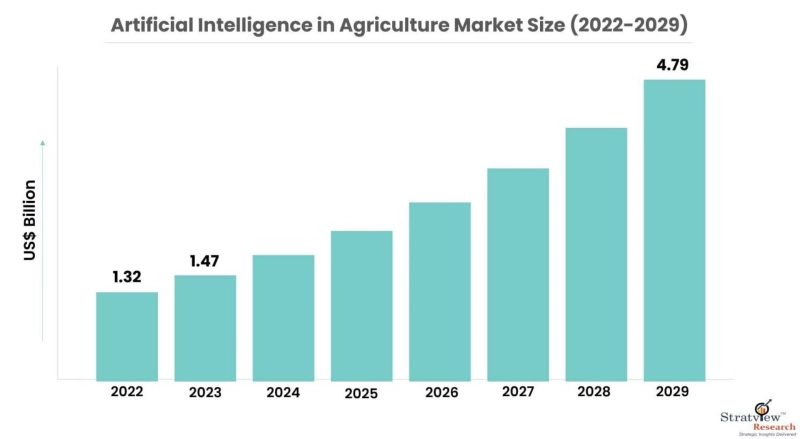Artificial Intelligence in Agriculture Market, by Technology Type (Machine Learning, Computer Vision, Predictive Analytics), Offering Type (Hardware, Software, AI-as-a-Service, Services, Deployment & Integration, Support & Maintenance), Application Type (Precision Farming, Livestock Monitoring, Drone Analytics, Agriculture Robots, Labor Management), and Region (North America, Europe, Asia-Pacific, and Rest of the World).
"Seeding the Future: Insights into Artificial Intelligence in Agriculture"
Artificial Intelligence (AI) is revolutionizing agriculture, offering transformative solutions to address the challenges of feeding a growing global population while minimizing environmental impact. The marriage of AI with agriculture brings forth a plethora of innovative applications that promise to reshape the future of farming.
AI technologies, such as machine learning and data analytics, empower farmers with valuable insights into crop management, resource allocation, and decision-making processes. By analyzing data from sensors, satellites, and drones, AI algorithms provide real-time information on soil health, weather patterns, and crop conditions, enabling farmers to optimize irrigation, fertilization, and pest control practices.
Furthermore, AI-driven automation is streamlining agricultural operations, from precision planting and robotic harvesting to autonomous tractors and drones for crop monitoring. These advancements not only increase efficiency and productivity but also reduce labor costs and minimize environmental impact through precision agriculture techniques.
Moreover, AI in agriculture facilitates predictive analytics, empowering farmers to anticipate market trends, optimize crop rotations, and mitigate risks associated with climate change and fluctuating market conditions.
In conclusion, the integration of AI into agriculture holds immense promise for the future, offering insights and innovations that will enable farmers to cultivate more sustainably, efficiently, and profitably, ensuring food security for generations to come.


